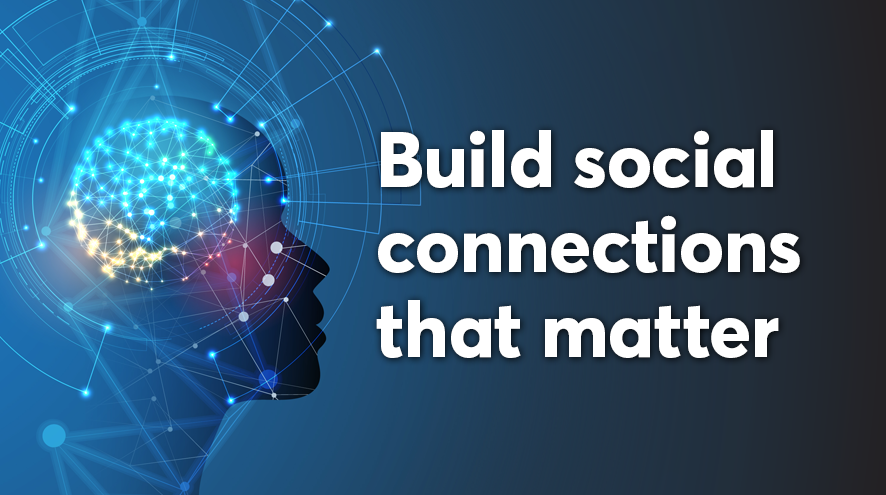Build social connections that matter
On this page, you’ll find tips on staying socially connected, ideas for engaging with others, and links to resources that support social wellness.

Build social connections that matter
Staying socially active is essential for maintaining a healthy brain. Research shows that regular social interaction can help protect against cognitive decline and lower the risk of dementia later in life. Social connection promotes mental resilience, boosts mood, and provides a sense of belonging that supports overall brain health.
Why social connection matters for brain health:
Engaging with others positively impacts brain health by:
- Stimulating cognitive function: Socializing activates areas of the brain associated with memory, decision-making, and emotional regulation.
- Reducing risks of depression and isolation: Connecting with others regularly helps combat loneliness and depression, both of which are associated with increased dementia risk.
Tips for staying socially connected:
Here are some practical ways to prioritize social connection and support your brain health:
- Reach out regularly: Even a quick coffee or phone call with a friend is enough. Staying in touch with loved ones supports emotional health and cognitive wellness.
- Combine socializing with activities: Join a club, volunteer, or participate in community classes. Activities like book clubs, walking groups, and fitness classes promote both social and cognitive benefits.
- Try something new: Engaging in new activities or meeting new people stimulates the brain, introducing fresh perspectives and learning opportunities. Explore local groups or hobbies that interest you to expand your social network.
Recommended activities for social wellness:
- Community involvement: Volunteer opportunities, community centres, and local events allow you to meet new people while contributing to a shared purpose.
- Group activities: Join a sports league, book club, or hobby group to regularly connect with others in a structured environment.
- Intergenerational connection: Engaging with people from different age groups – whether through family, mentoring, or community events – provides valuable learning experiences and diverse social support.
